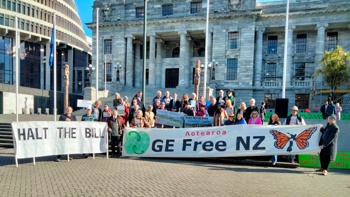So I was listening to Mike Hosking this morning, thinking to myself how nice it would be to be in London on a sunny spring day. And then he said something that set me thinking
He was talking about the budget and what not to expect in terms of radical change. He then warned that the coalition’s caution may continue at the next budget because it’s only a year away from the election.
I thought to myself, hold on, this mob is only half a year into their term and we’re already talking about an election.
It brought back into relief the length of the parliamentary term in New Zealand.
At just three years it’s one of the shortest in the world shared with El Salvador, Jordan and Australia’s house of representatives. But in Australia, the Senate's term is six years. In Brazil, their upper house has an eight-year term.
Most countries go for five years. A handful go for four years and a few go for a mind-blowing six years.
I’ve long had concerns about New Zealand’s short term. While of course opponents of any given government favour it because it gives you a chance to throw out the hated winner, the problem is all the consequences it has for policy.
It results in short-termism and policies designed more for political ends than for the long-term health of the country.
It either means things happen too quickly or too slowly and often not at all.
And perversely the three-year term means we end out with longer government tenure. If a government gains confidence in it’s first term then they’re often voted back in, resulting in a de facto six-year term.
We can see that in the last two governments that actually ended out with three terms each or nine long years.
Personally, I favour four years giving any government a two-year breathing space between elections to quietly achieve the things they were given a mandate to achieve. But it’s also not too long to wait to throw out the incompetent if we wish.
Take your Radio, Podcasts and Music with you









